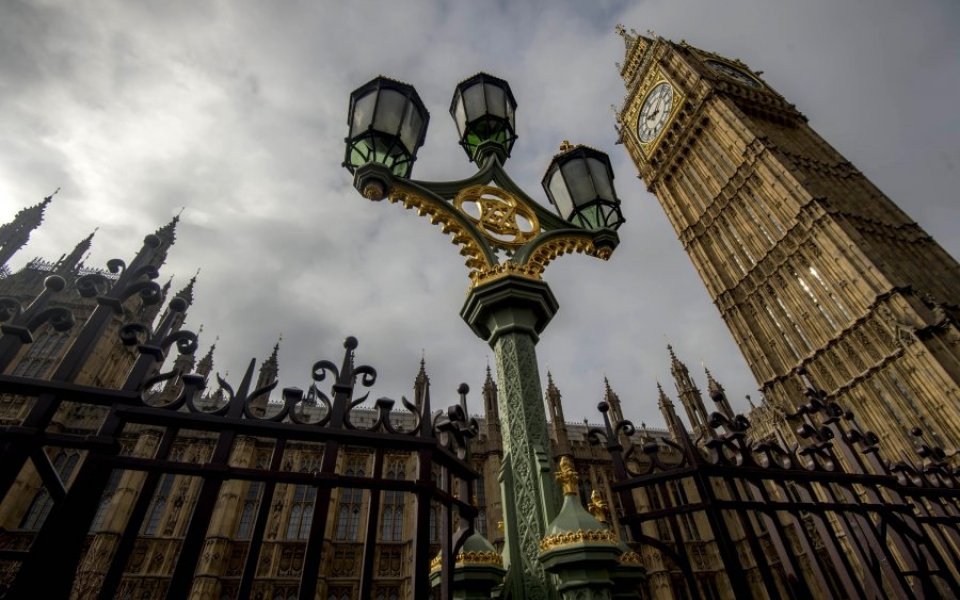A tale of two leaders: how Corbyn’s shadow cabinet reshuffle and Cameron allowing ministers to campaign for “In” and “Out” in the EU referendum defined what politics in 2016 will look like

Yesterday saw two very significant political events that define what much of the 2016 political scene will look like.
Firstly, whilst they’ll have to wait until after his renegotiation in February, David Cameron confirmed that Tory ministers in his government would be free to campaign for either the ‘In’ or ‘Out’ campaigns in the upcoming referendum of Britain’s membership of the European Union.
There’s no point denying that the EU issue doesn’t have the potential to cause huge rows within the Tory party, so this decision takes the wind out of any speculation that the PM is forcing known Eurosceptic big names into voting his way. It was also right to settle this issue now rather than later and it has calmed potentially explosive tensions.
The Prime Minister knows just how seriously his members take this issue and that it boils down to what we as Tories see as the best direction for our country. It’s only right that cabinet ministers have the right to campaign on what side they deem to be best. Regardless of his own views on the matter and how he chooses to campaign after February, this decision will not be forgotten. It is with this in mind, that it is only right that the Prime Minister receives the full support of his party regardless of the outcome of the referendum.
Read more: Corbyn faces slew of resignations after reshuffle
Sure it could be wishful thinking: many Tory MPs have dedicated much of their career to securing a Brexit. The idea that they’ll have to sit back and watch their political vision come to a swift end if they lose the referendum, will be hard to swallow. However, for now it seems, waters are calm in camp Tory.
The same cannot be said for Labour.
Although there appears only one major sacking in the Labour reshuffle in the axing of Michael Dugher as shadow culture secretary, its significance is enough to clarify the devastating state of Corbyn’s "kinder" Labour party.
The Evening standard reports that the party is at war between moderates led by deputy leader Tom Watson and hard left MPs loyal to Corbyn.
Shortly after the sacking, Watson ran to Dugher’s defence and through a statement, alluded to him causing problems for Corbyn’s cabinet from the backbenches. Alongside this, the Independent reports that eight other members of the shadow cabinet and a number of Labour backbenchers have rushed to his defence also. This has recently been followed by three resignations from his shadow cabinet with Kevan Jones and Jonathan Reynolds writing of their concerns over the influence of hard left anti-nuclear group Stop the War Coalition.
Read more: Cameron confirms MPs will be free to campaign for Brexit
On top of this, rumours circulate about the reasoning behind the sacking of shadow europe minister, Pat McFadden. McFadden believes he has been targeted for asking the wrong type of questions in the House of Commons when discussing terrorism. Political blog Guido Fawkes, highlight McFadden’s refusal to blame the West for the atrocious ISIS terrorist attacks in Paris, as being the likely contributor.
Labour’s membership rules mean many of Corbyn’s own supporters remain entrenched at local association level across many parts of the country. Having spent years in the political wilderness, socialists from an array of splinter groups, are now gathering ‘momentum’ off the back of their leader’s victory and have no intention of going away.
As a result, many of MPs perceived to be not left wing enough, may risk being deselected by their local party and run out of town.
What with the laughable displays at PMQs, this botched reshuffle and Corbyn’s decision to surround himself by comrades from likeminded left wing groups like Stop the War Coalition, Labour has demonstrated it is returning deep into the political wilderness and is a party completely at odds with itself.
2016 will be a fascinating year in politics. The EU debate and the ability of the Tories to keep it cool will likely dominate much of political discussion, as will the ever gaping rift in the Labour party. Could we be witnessing an official split? Let’s see.